#cossack
Text

Ulrika by mossacannibalis
#mossacannibalis#cossack#horse archer#archer#rapier#vampire#ulrika magdova#warhammer fantasy#kislev#fighter#noble#robe#fur#sash#jewelry#felix missed out on having a cossack vampire gf
210 notes
·
View notes
Text
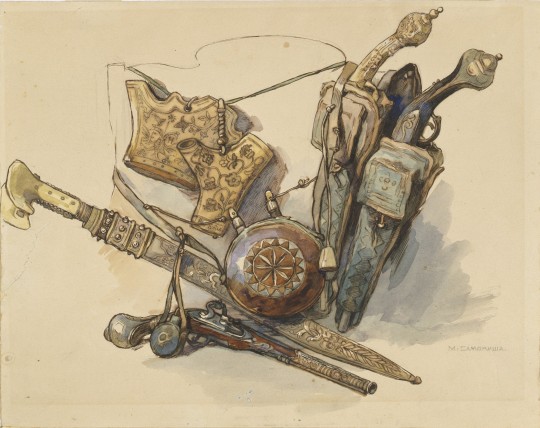
Antique Cossack Arms by Mykola Samokysh, early XXth century
249 notes
·
View notes
Text
Cossack vampire
Let me introduce you Ukrainian vampire in clothes typical of a Cossack foreman of the 17th century

#vampire#vtm art#character art#illustration#procreate art#procreate#vtm#vampirethemasquerade#Ukraine#cossack
157 notes
·
View notes
Photo
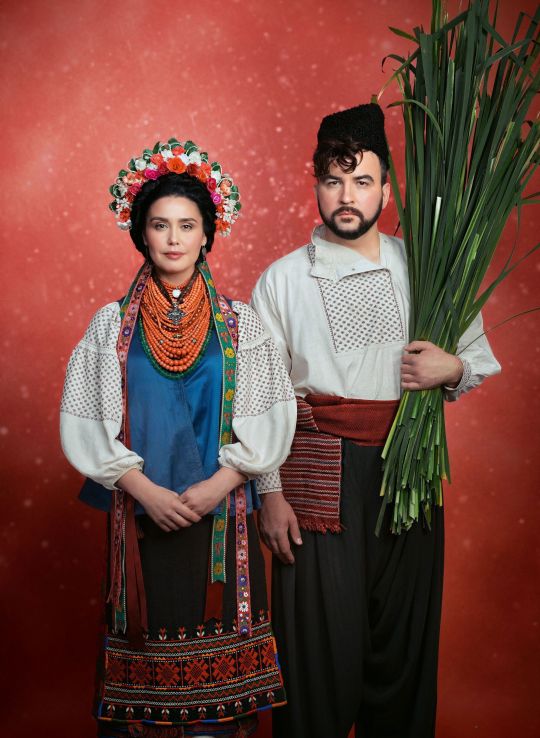
Ukrainian Folk Costumes - Ruslan Sanychkin
110 notes
·
View notes
Text

Cossacks attacking a squadron of the Guards of Honour
by Édouard Detaille
#édouard detaille#art#cossacks#cossack#french#france#russian#russia#napoleonic#napoleonic wars#history#gardes d'honneur#guards of honour#europe#european#cavalry#campagne de france#winter#snow
87 notes
·
View notes
Text
Black Magik/Illyana Rasputina (Earth-161) “X-Men Forever”
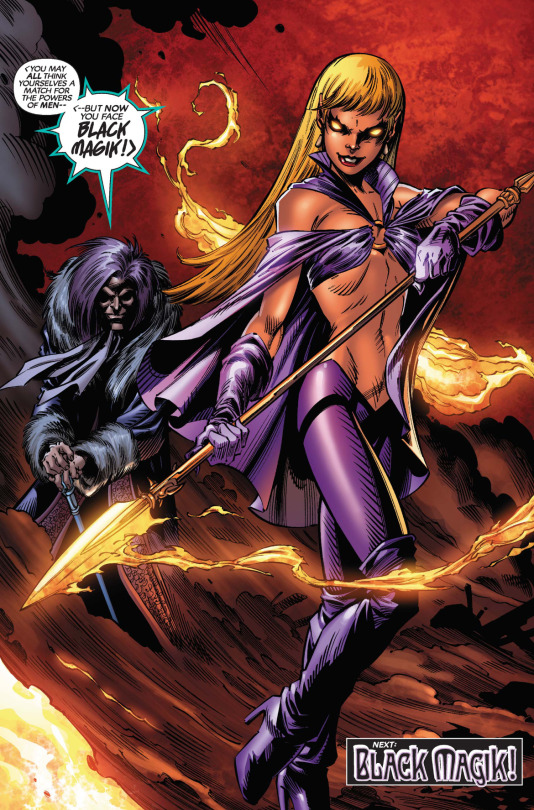


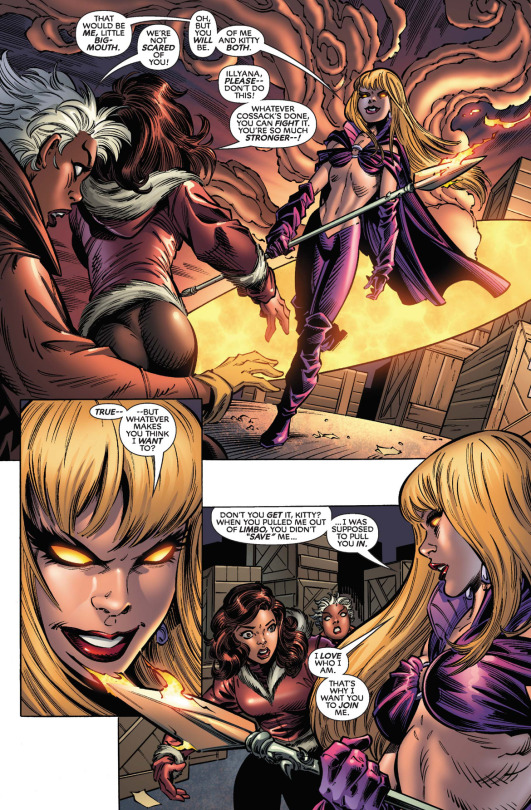
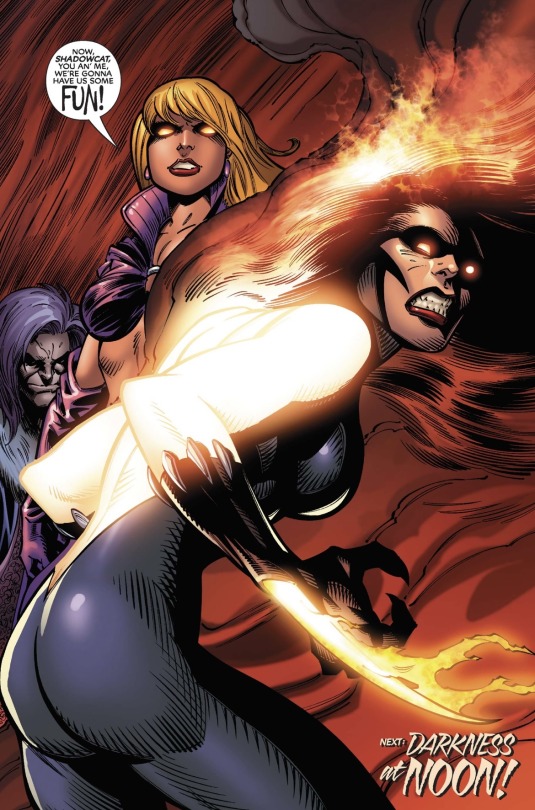
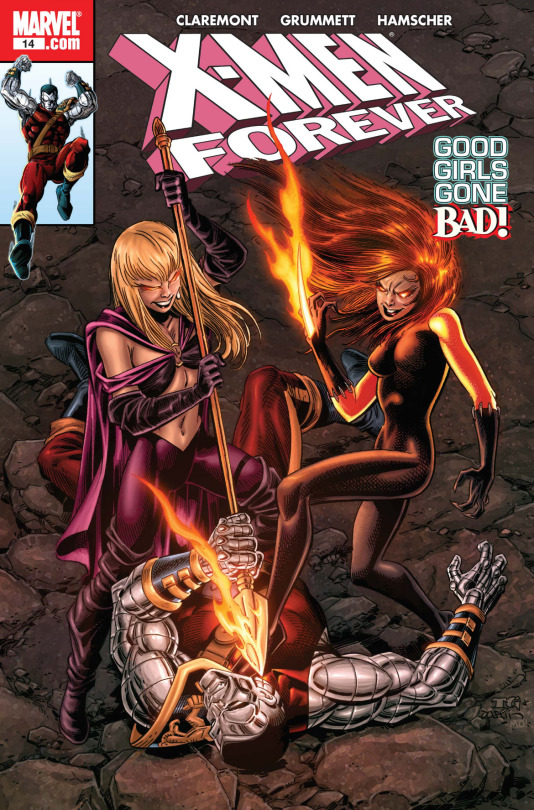
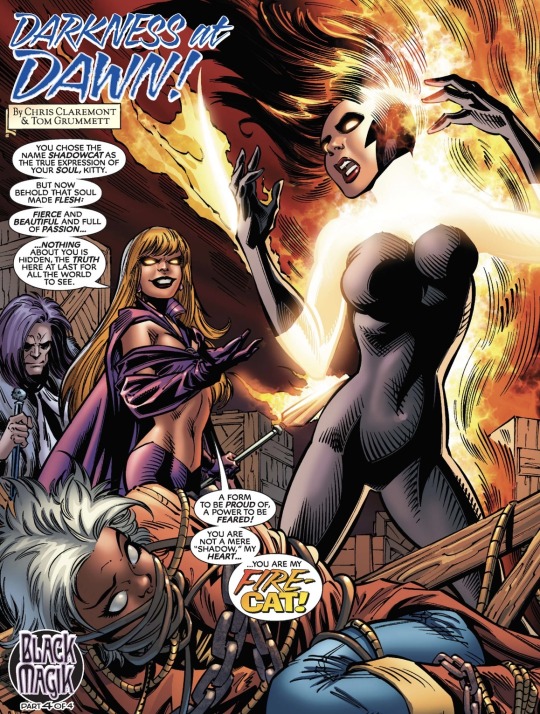

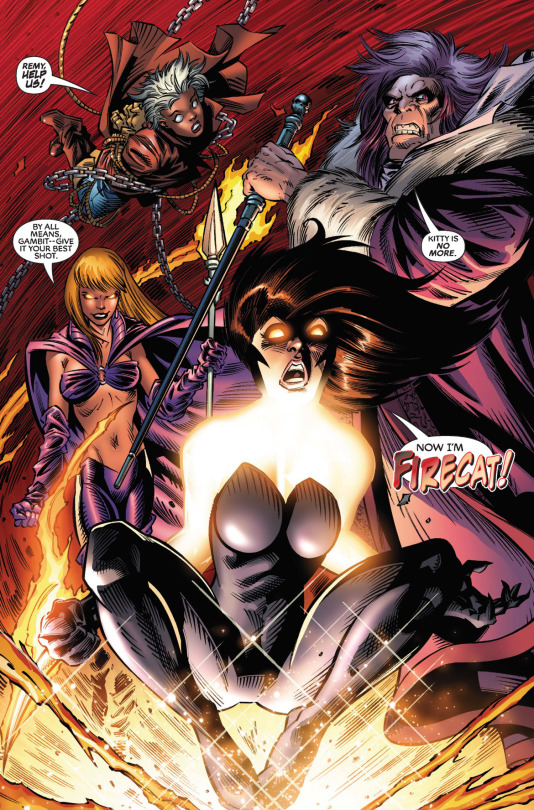
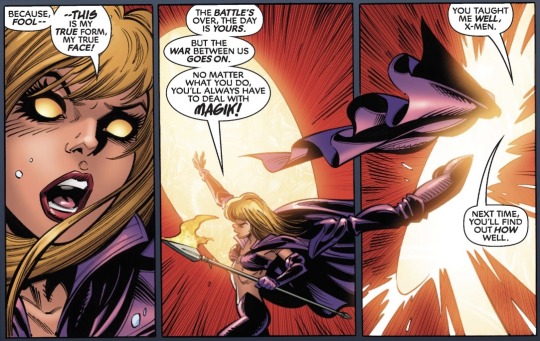
We may never know what happened to Earth-161 Magik, how Cossack managed to mystically age her to young adulthood, nor why she turned evil, but Claremont crafted an intriguing universe with the sadly cancelled X-Men Forever.
#Magik#Illyana Rasputin#Illyana Rasputina#Black Magik#Kitty Pryde#Kate Pryde#Shadowcat#Fire Cat#X-Men#X-Men Forever#Tom Grummett#Chris Claremont#Marvel#Marvel Comics#Comics#Comic Books#Storm#Ororo Munroe#Cossack#Earth-161#Katyana#Fire-Cat#Shadowkat#Gambit#Remy LeBeau#Colossus#Piotr Rasputin
27 notes
·
View notes
Photo
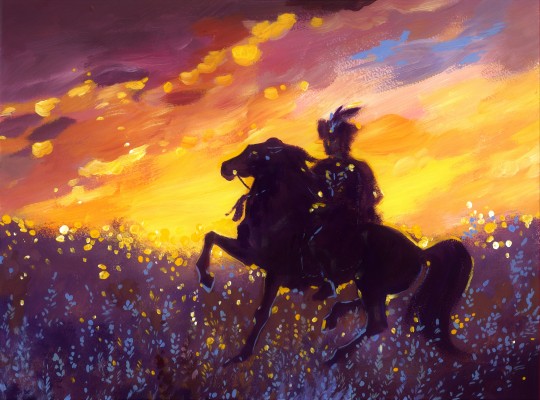
Cossack Mamay (2022)
This work was inspired by the image of the Cossack Ivan Bohun (https://en.wikipedia.org/wiki/Ivan_Bohun) and the Ukrainian folklore hero of the 17th century - the Cossack Mamay (https://en.wikipedia.org/wiki/Cossack_Mamay). This is my tribute to the Ukrainian people and also to my ancestors, who had the surname Mamaeu, descendants of Mamay...
#cossack mamay#cossack#bohun#ivan bohun#mamay#rider#horseman#marysmirages#ukraine#ukrainian folklore#17th century#art#painting#sunset#horse
634 notes
·
View notes
Text

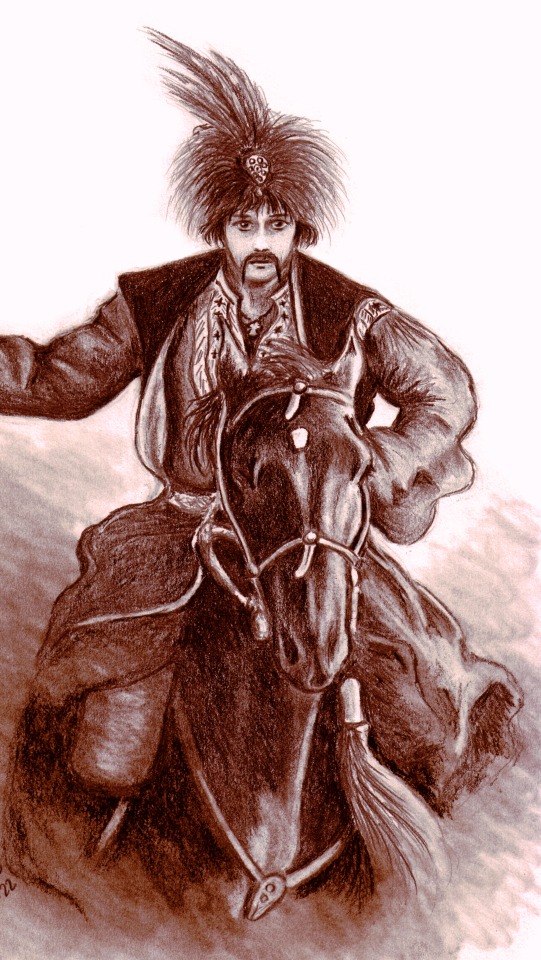

The Cossack Hero
One from my older pencil drawings (5.03.2022)
#art#traditional art#traditional drawing#traditional illustration#historical art#horse art#horse and rider#horse drawing#cossack art#cossack#cossacks#cossack heroes#ukrainian history#ukrainian heritage#my art#my artwork#pencil#pencil sketch#pencil art#pencil drawing#equine art
55 notes
·
View notes
Note
hey ! You seem to know a lot about siberia so i have a question. When the russians conquered siberia, how much of the indigenous population died, i've heard that actually because siberia is for a huge part non-settled the natives were just overflooded by the russians kind of like in canada but i was wondering if it was true.
Also the cossacks played a big role in the conquest of siberia but i've seen people saying they were russian cossack which i find weird because i was always told cossacks were ukrainians and those who speak russian are just russified due to imperial russia policy. So i wanted to hear your thought because you look like to know about it
I hope it didn't sounded weird or arrogant btw ^^'.
Hey, thank you for this ask.
The Russian conquest of Siberia was a process that happened over several centuries, and it did have significant implications for the indigenous populations of the region. Historical accounts on the casualties can vary though, due to limited records at the time
When the Russians began their expansion into Siberia in the late 16th century, they encountered a diverse range of indigenous peoples. The interactions between the Russians and the natives were often characterised by conflict, disease, and displacement, which of course, led to the decline of some indigenous communities.
We must remember though: The impact of Russian colonisation varied from region to region and depended on factors such as the local policies of Russian authorities, the resistance of the native peoples, and the availability of natural resources in the area.
However, it is widely acknowledged that the conquest resulted in significant demographic changes and hardships for many indigenous groups of Siberia.
Siberia was indeed sparsely populated in comparison to its vast size.
However it's an oversimplification to just say that the reason why Siberia was flooded by Russians was just because Siberian peoples were sparsely populated and "non settled".
Further I have an issue with projecting concepts such as settled or non settled onto indigenous groups. The terms "settled" and "non-settled" are often rooted in a Eurocentric colonial perspective, implying that European-style sedentary settlements are more advanced or superior to nomadic or semi-nomadic lifestyles, and during discussions about indigenous peoples, these concepts are weaponised against them to downplay or even justify their colonisation.
The Russian conquest of Siberia had devastating effects on the indigenous populations. The arrival of the Russians brought deadly diseases that led to a significant reduction in native numbers. There were conflicts and violence with indigenous groups, causing loss of life and displacement. Forced labour and exploitation also took a toll, disrupting traditional ways of life, and many indigenous communities were displaced from their ancestral lands, leading to cultural disruption and challenges.
Regarding the comparison to Canada's history with its indigenous populations, there are some similarities in terms of the impacts of colonialism, disease, and displacement. Both regions experienced significant changes to the indigenous populations due to the arrival of European settlers and the expansion of colonial powers. So yes, it's similar, but not in the way that you said it was (both groups indigenous peoples being "non settled" so that's why they were flooded/successfully colonised).
Regarding the role of the Cossacks in the conquest of Siberia, you are correct that they played a crucial part. However it was primarily Russian Cossacks as opposed to Ukrainian Cossacks.
In the context of Siberian conquest, the Russian Cossacks were an instrumental force in expanding the Russian presence eastward.
On the origins of the Cossacks in case some people are confused: The Cossacks emerged as a social and military phenomenon in the 15th and 16th centuries, primarily in the frontier regions of the Polish-Lithuanian Commonwealth, the Grand Duchy of Moscow, and the Crimean Khanate.
Originally, the term "Cossack" (from the Turkic word "qazak") referred to individuals living on the borderlands, often engaged in various military and raiding activities. Over time, Cossack communities formed and theh developed their own structures and traditions. They were known for their horsemanship and guerrilla warfare tactics, which made them valuable assets for the expanding Russian state.
Cossacks were largely autonomous and governed themselves through a form of self-rule known as the "Cossack Host".
As the Russian Empire expanded into Siberia, the Russian Cossacks became instrumental in the conquest of the vast region. They were well-suited for long-distance travel and warfare in the challenging Siberian environment. The Russian Cossack expeditions into Siberia involved trade, hunting, and conflict with local indigenous peoples.
I need to make clear here that Cossacks were/are not a homogenous group. They came from various ethnic backgrounds, including Ukrainians, Russians, Belarusians, and others. While Ukrainian Cossacks were prevalent in the areas of modern-day Ukraine and Southern Russia, Russian Cossacks were more common in the areas closer to the core Russian territories.
I'm also sorry if it seems like I'm teaching you to suck eggs here but I just want to make this clear:
There is a historical distinction between Russian and Ukrainian Cossacks, but it's important to understand that both groups shared similar origins and cultural ties.
As previously mentioned, Cossacks were originally formed in the borderlands of the Polish-Lithuanian Commonwealth and the Grand Duchy of Moscow (early Russia). Over time, they developed different branches: the Ukrainian Cossacks and the Russian Cossacks being two of them.
The Ukrainian Cossacks were primarily based in the territories of modern-day Ukraine and Southern Russia. They played a significant role in defending the Ukrainian territories from various threats, including raids from the Crimean Tatars and the Ottoman Empire. The Ukrainian Cossacks established semi-autonomous communities with their own elected leaders called Hetmans. One of the most famous Ukrainian Cossack groups was the Zaporozhian Cossacks, who were based in the Zaporizhzhia region along the Dnieper River.
The Russian Cossacks, on the other hand, were based closer to the core Russian territories, particularly in the regions of the Don and the Volga rivers. They were instrumental in expanding Russian influence and control over the vast frontier areas, including Siberia. The Russian Cossacks were organised into various hosts (military units) and were involved in both military campaigns and other activities such as exploration, trade, and agriculture.
While Ukrainian and Russian Cossacks had regional differences and distinct traditions, they shared common cultural and historical roots as East Slavic-speaking people.
Note: terms "Ukrainian" and "Russian" Cossacks don't solely refer to the ethnic background of the individuals but rather to the geographical areas where their respective Cossack communities were predominantly located
As the Russian Cossacks ventured deeper into Siberia, they encountered diverse indigenous populations. Yes; the Russian Cossacks played a crucial role in expanding Russian influence and control over Siberia.
The Ukrainian Cossacks on the other hand, had very little involvement in the expansion into Siberia. The majority of their activities were focused on defending the territories of present-day Ukraine and Southern Russia.
So, yes. Russian conquest of Siberia did have a devastating impact on the indigenous populations. It was also primarily Russian cossacks who were involved in the expansion into Siberia, not Ukrainian Cossacks.
However, I do need to touch upon this. Throughout their history, Cossacks have also faced oppression and challenges under the Russian state. They experienced forced labour and serfdom in the 18th and 19th centuries, losing their traditional freedoms. Russian policies of Russification aimed to assimilate them into Russian culture. Cossack rebellions, like the Pugachev Rebellion, were brutally suppressed. The Russian government also disrupted their communities through demographic changes and curbed their autonomy over time.
So. In summary:
We can't put a number on exactly how many of the indigenous population died due to limited records.
It is an oversimplification to say that the "non-settled" nature of the indigenous peoples is the reason why Siberia became flooded by Russians
The Russian conquest of Siberia was devastating on the indigenous populations.
Projecting European colonialist concepts such as "settled" and "non settled" onto indigenous groups ignores their unique ways of life and implies that a European "settled" lifestyle is superior to the indigenous "non settled" lifestyle and is often used to downplay or even justify their colonisation.
There is a difference between Russian and Ukrainian Cossacks, Russian Cossacks were the ones who were primarily involved in the expansion of Siberia.
Cossack groups themselves have faced oppression under the Russian state.
I hope this was helpful.
#Russia#Ukraine#Cossacks#Cossack#Russian colonisation#Russian colonization#russian colonialism#Russian imperialism#Siberia#Colonization of Siberia#Russian Empire#Russian history#Ukrainian history#indigenous peoples#indigenous people of russia#Indigenous people of Siberia#Indigenous Siberians#Siberians#Native Siberians#Colonialism#Indigenous people#Cw long post#Long post
119 notes
·
View notes
Photo

Grigory Ignatievich Lapchenko (Cossack, 1801-1876)
Susanna Caught by the Elders in her Bath, Not later than 23 November 1831
The Mikhailovsky Palace
#Grigory Ignatievich Lapchenko#cossack#ukranian#art#fine art#european art#fine arts#classical art#susanna caught by the elders in her bath#female#woman#european#europa#europe#traditional art#oil painting#western civilization
197 notes
·
View notes
Text
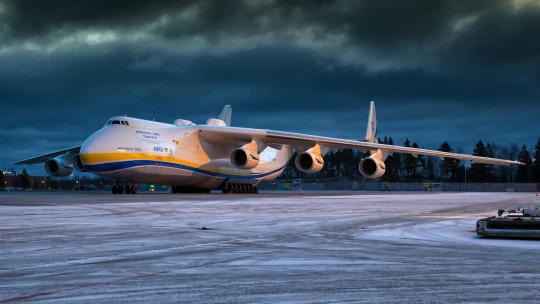
"Stockholm Stopover"
#Antonov#An-225#Mriya#Cossack#Jumbo jet#cargo plane#airlifter#world's largest plane#aviation photography#transport#freight aircraft
40 notes
·
View notes
Text
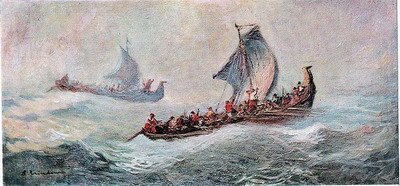
Cossack Boats by Borys Kriukov, 1960s
82 notes
·
View notes
Text
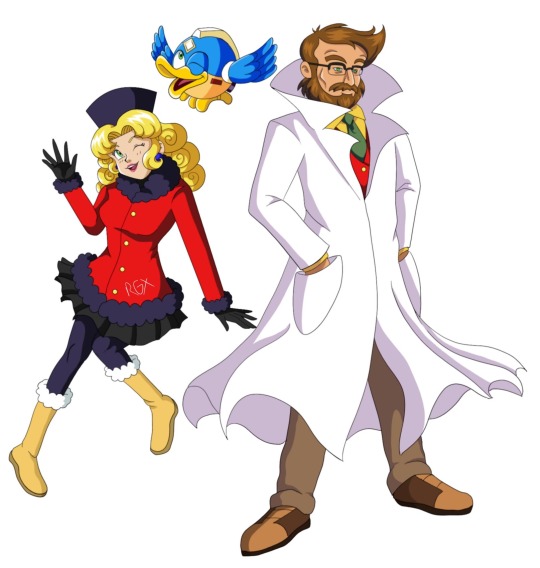
The Cossacks again!
#megaman#mega man#ruby spears mega man#art#megaman ruby spears#rockman#mega man kalinka#kalinkacossack#kalinka#cossacks#Cossack#dr cossack#beat
32 notes
·
View notes
Text
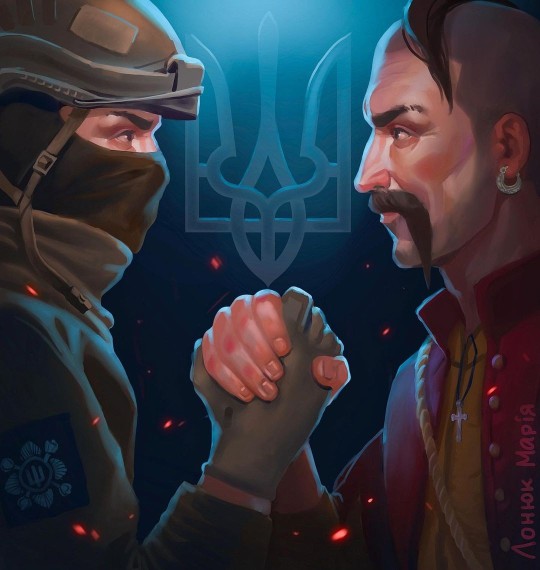
(c) Mariia Loniuk @ art.malon
#ukraine#украина#україна#russia#россия#росія#putin#путин#путін#война#war#art#illustration#війна#арт#ілюстрація#иллюстрация#козак#cossack#army#armedforces#zsu#soldier#зсу
132 notes
·
View notes
Text
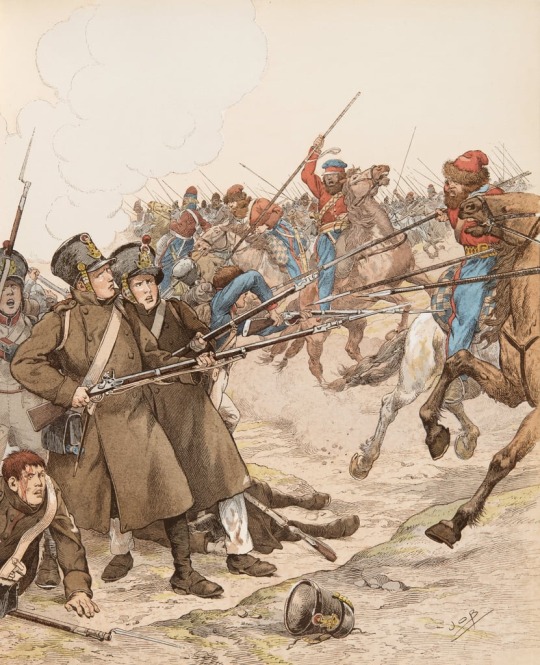
Les Marie-Louise by Jacques Onfroy de Bréville
#jacques onfroy de bréville#art#conscripts#marie louise#napoleonic#first french empire#napoleonic wars#job#france#french#russia#cossacks#cossack#europe#european#history#soldiers#napoleon#bonaparte#conscript#troops#russian#cavalry
38 notes
·
View notes
Photo
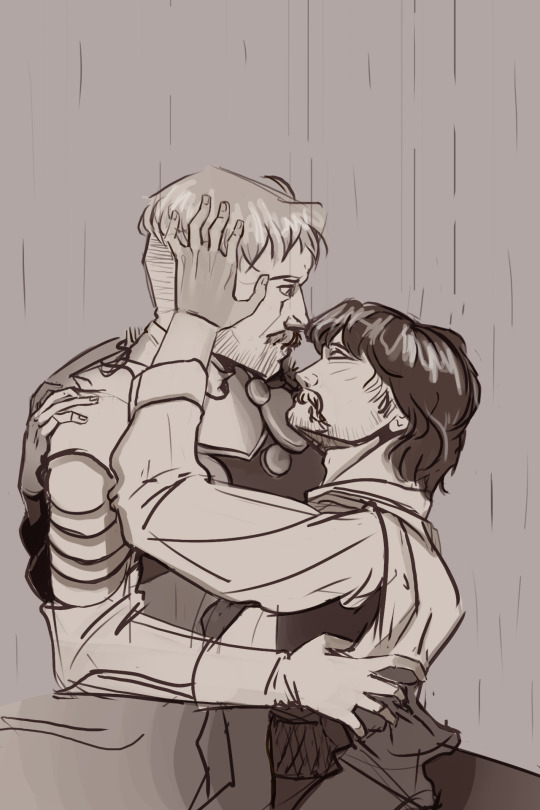
just some todays sketch of my fav szlachcic and cossack
#jan skrzetuski#jurko bohun#my art#With Fire and Sword#ogniem i mieczem#trylogia sienkiewicza#polish literature#cossack#polish nobelman
88 notes
·
View notes